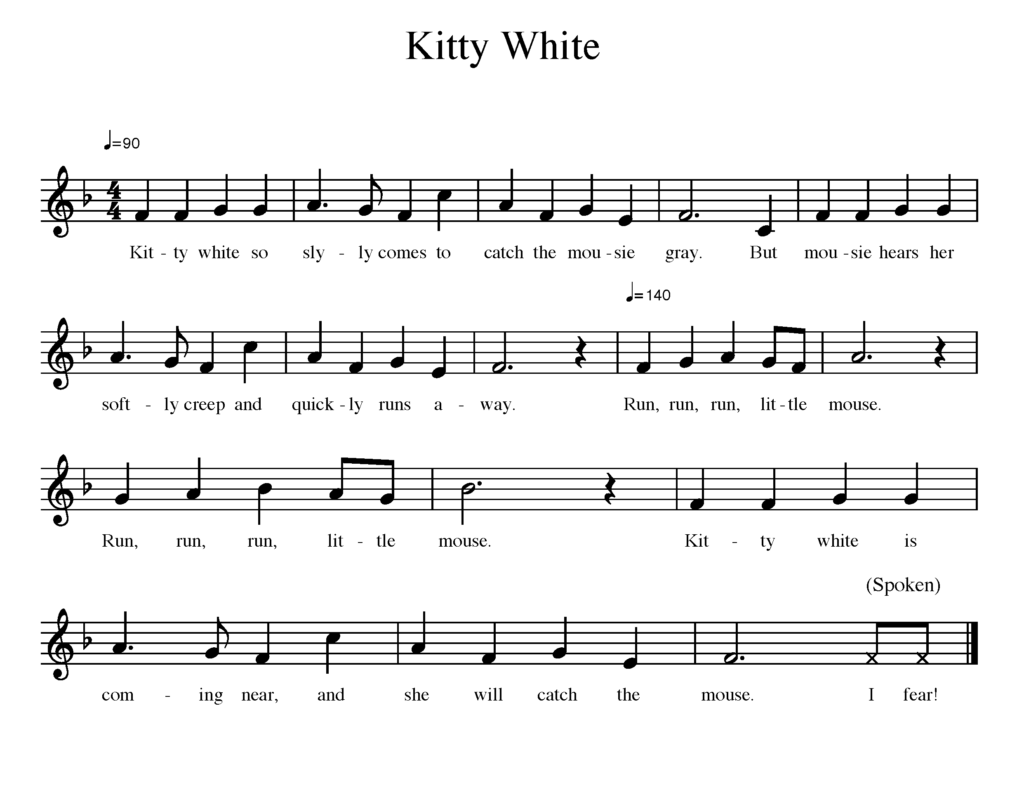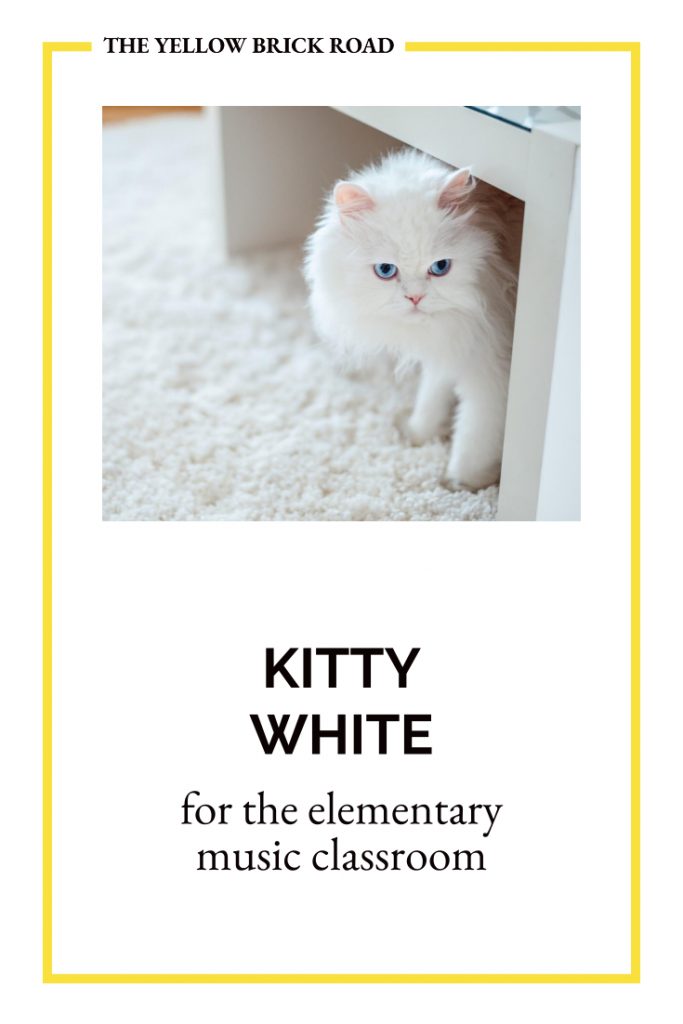If you follow my Instagram stories, then you know I started volunteering at our local animal shelter. I’ve had the pleasure of cuddling many cats since then, and I have the scratches to prove it. In honor of this new hobby of mine, today’s post will be about the folk song called Kitty White.

TEACHING FAST/SLOW WITH A CIRCLE GAME
Kitty White is a fun circle game to play when teaching students to differentiate fast and slow.
- To begin, students join hands and form a large circle (arms outstretched).
- One student (the mouse) is in the middle, and another (the cat) is on the outside of the circle.
- Students keep their hands joined as they move clockwise while singing the song. The cat slowly moves around the outside of the circle.
- At the start of the second section (Run, run, run, little mouse), the students stop moving and drop their hands to their sides.
- The cat chases the mouse in and out of the circle until the end of the song.
- Then, both students join the circle and two new students are chosen to play the cat and the mouse.
A DEEPER UNDERSTANDING
This active game lends a deeper meaning to fast and slow. Most children have experienced their pet cats chasing after a toy or have witnessed it in the cartoons and other television programs they watch. The slow prowling of the cat and the fast scamper of the mouse is a real-life scenario that they’ll easily understand. Once you’ve finished the game, you can lead the class in a discussion about the concept of fast and slow with these leading questions:
- Why do you think the first section of the song is slow? What is the cat doing during this part of the song?
- Why do you think the song speeds up during the second section? What is the cat doing? What is the mouse doing?
- What makes this song fun or exciting?
- How is this song different or the same as a lullaby?

